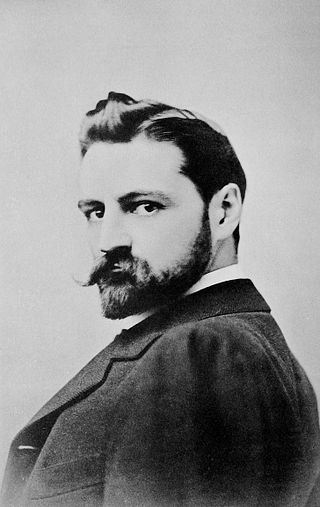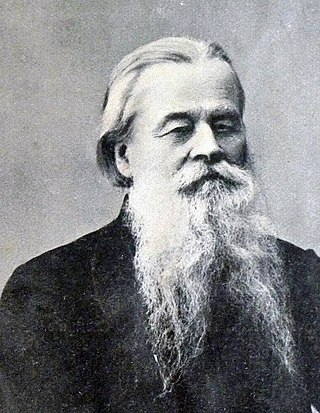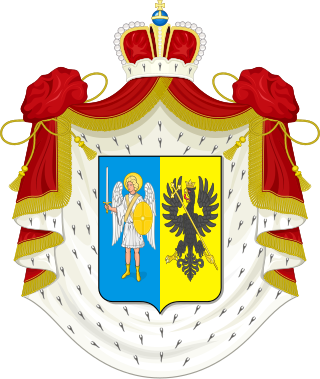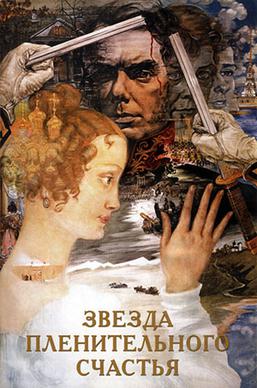
Princess Maria Mikhailovna Volkonskaya (born on 13 March 1863 - she was killed on 19 May 1943, Moscow, USSR) was a Russian princess, Catholic convert and writer.

Princess Maria Mikhailovna Volkonskaya (born on 13 March 1863 - she was killed on 19 May 1943, Moscow, USSR) was a Russian princess, Catholic convert and writer.
Volkonskaya was born on 13 March 1863 in a very old and aristocratic Russian family of Orthodox religion. In 1901 in Switzerland, like many of her relatives, including brothers Alexandr Volkonsky, Serge Volkonsky, Peter Volkonsky, she adopted Catholicism. For many years she lived in Rome, was an active parishioner of the Russian Catholic Church of Saint Lawrence, was involved in charity work and in the translations of Catholic spiritual literature into the Russian language. She was killed on 19 May 1943 in Moscow.
Our Lady of Lourdes. - St., 1906.
Don Bosco, the father of orphans and the poor. - St., 1906 Peter Olivain. - Petrograd, 1917.
Brief reflection on the Divine Passion of Christ. - Paris, 1932. The Story of a treatment (typing)

Grand Duchess Catherine Mikhailovna of Russia, was the third of five daughters of Grand Duke Michael Pavlovich of Russia and Princess Charlotte of Württemberg. She was also the wife of Duke Georg August of Mecklenburg-Strelitz.

Prince Serge Wolkonsky was an influential Russian theatrical worker, one of the first Russian proponents of eurhythmics, pupil and friend of Émile Jaques-Dalcroze, and creator of an original system of actor's training that included both expressive gesture and expressive speech.

Archpriest Aleksei Evgrafovich Zerchaninov was a Russian Greek-Catholic priest.
Dmitriy Vladimirovich Kuz'min-Karavaev (1886–1959) was an Old Bolshevik who converted after the October Revolution from Marxist-Leninist atheism to Catholicism while working as a senior official of the Commissariat of Nationalities directly under a young Joseph Stalin. After being deported from the Soviet Union in the Philosophers' ship, he was subsequently ordained to the priesthood in the Russian Greek Catholic Church and became a well-known professor at the Russicum.
Sergiy Verigin was a Russian Orthodox convert to Catholicism. Initially ordained an Orthodox clergyman, in 1907 Verigin changed his religious position united himself to Catholic faith. From 1910 to 1929 was a priest who celebrated Mass in a Russian Catholic church in Rome and participated as a member of Pro Russia movement, however maintaining pessimistic views in relation to Russian Orthodoxy union with Catholic Church. Verigin died in 1938.

The House of Volkonsky, also spelled Volkonski or Wolkonsky and later times Wlodkowski after migration to Poland [citation needed], is an ancient Russian noble family, belonging to the Rurikids. It was named after the Volkona river south of Moscow. The family held the title of Prince in the Russian Empire.

Princess Maria Nikolaevna Volkonskaya was a Decembrist wife of Prince Sergey Volkonsky who followed her husband into Siberian exile after his trial.

The Star of Captivating Happiness is a 1975 Soviet historical romance. The title is an allusion to a line from the poem To Chaadayev by Alexander Pushkin. It is a drama with the dedication "to the women of Russia".

Princess Zinaida Aleksandrovna Volkonskaya, was a Russian writer, poet, singer, composer, salonist and lady in waiting. She was an important figure in 19th-century Russian cultural life. She performed in Paris and London as an amateur opera singer.
Diodor Valeryanovich Kolpinskiy was an Eastern Catholic priest from Russia and a member of the Russian apostolate.
Chrysostom Blashkevich, OSB was a Benedictine monk of Russian origin. Blashkevich was born in a Russian Orthodox family. During World War II was recruited into the Soviet Army, where he turned his coat and served as interpreter in the German Army. In 1945, he converted to Catholicism and entered the Benedictine Order, being dean of the monks of the Russian Greek Catholic Church at Niederalteich Abbey in West Germany.
Nikolai Petrovich Avtonomov was a former Orthodox clergymen and after, an Eastern Catholic clergyman in exile.
Constantine Koronin was a Russian Orthodox priest.

Father Sergei Mikhailovich Solovyov was a Russian Symbolist poet, religious philosopher and an Orthodox priest. Solovyov was a grandson of the historian Sergey Solovyov, a nephew of the poet and philosopher Vladimir Solovyov, second cousin of Alexander Blok, and a friend of Andrei Bely.
Boris Nikolayevich Shiryaev was a Russian writer of the "second wave" of exile and a participant of the Russian apostolate in the Russian Diaspora. A member of the White movement during the Russian Civil War, during the occupation of the southern Russian city of Stavropol by the German Wehrmacht, he collaborated with the occupiers by publishing anti-Soviet newspapers and consequently had to flee to Italy. He was a member of the Russian Greek Catholic Church in Diaspora.

Archpriest Alexander Sipiagin was a politician, a priest of the Catholic Church and a member of Russian apostolate.
George Leonidovich Roshko was a priest of the Catholic Church, Plenipotentiary Visitator for Congregation for the Oriental Churches in leading Russian Catholic ministry in the world, a member of the Pontifical Council Cor Unum, member of the International Catholic Migration Commission, a member of the Pontifical Commission for the codification of Eastern Canon Law, rector of the parish of the Holy Trinity in Paris and a member of Russian apostolate.

Nadezhda Lappo-Danilevsky was a Russian writer and a member of Russian apostolate.
Andrew Sterpin, SJ was a Catholic priest, Jesuit, member of the Russian apostolate, teacher and director of Saint George's boarding school in Meudon, that had a great influence in the formation of several generations of Russian students, and also took an active part in the spiritual, cultural and social life of the Russian diaspora in France.

Russian Women is a two-poem cycle by Nikolai Nekrasov, telling the stories of two women, the wives of the Decembrists, who followed their husbands, Sergey Trubetskoy and Sergey Volkonsky, to their exile in Siberia. Part one, Princess Trubetskaya, was written in July 1871; part two, Princess M.N. Volkonskaya, a year later. Both were published by Otechestvennye Zapiski, in April 1872 and January 1873, respectively, in 'softened', censorship-friendly versions. Both were included into the 1873 Stikhotvoreniya collection, now as a single, two-part work.
https://web.archive.org/web/20130126004158/http://vselenstvo.narod.ru/library/lexicon.htm